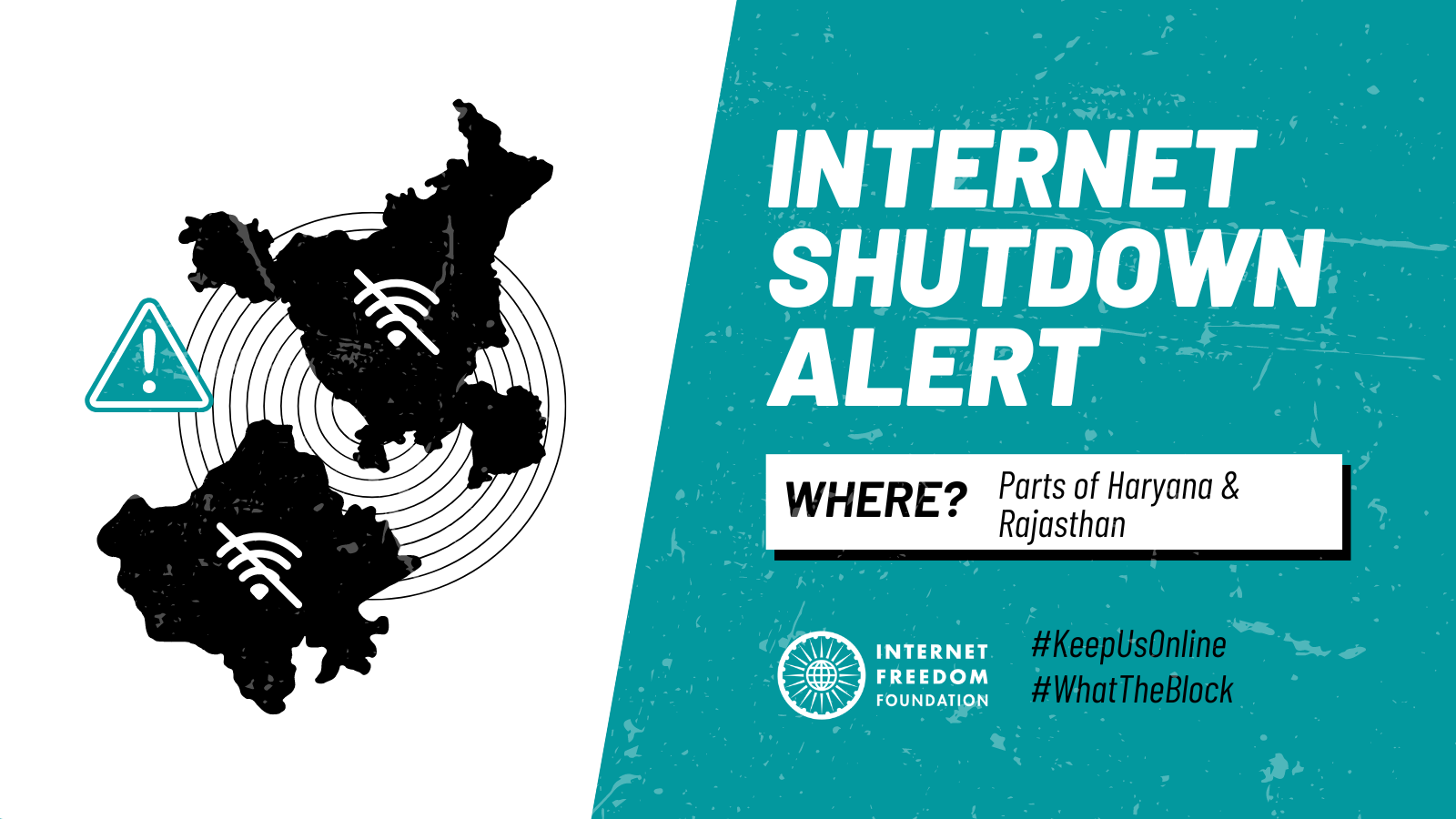
The ongoing internet shutdowns in the states of Haryana & Rajasthan, & online censorship in response to Farmers Protest 2024 have an adverse impact on our right to free speech & right to protest.
On 11th Feb, the Haryana Govt. suspended mobile data services from 11th to 13th Feb amidst calls for protest by the Samyukta Kisan Morcha and Kisan Mazdoor Morcha, announcing the "Delhi Chalo" march by more than 200 farmers' unions.
In response, the Addl. Chief Secy to Haryana Govt. issued internet shutdown orders, citing “spread of misinformation and rumours through various social media platforms” & ”for facilitation and mobilisations of mobs and agitators and demonstrators who can cause serious loss of life and damage to public and private properties”. The reasons are vague & the Order does not cite any actual evidence to support the shutdown. It disproportionately impacts the freedom of assembly & free speech and expression online. Such measures fail to meet the proportionality test laid out in Anuradha Bhasin v. UoI.
Empirical studies indicate that such shutdowns may backfire, as they disrupt communication channels essential for organized peaceful protests and could potentially incentivise disorganized violence. Lack of access to internet services inhibits individuals' ability to fact-check information and document human rights abuses perpetrated by state actors.
Reports also indicate that X/Twitter accounts documenting protests and alleged human rights violations are also being withheld in India, purportedly due to legal demands under the IT Act, 2000.
However, authorities haven't disclosed these blocking orders, depriving individuals of the reasons for blocking and an opportunity to challenge their legality. This undermines both freedom of expression and the right to information. These actions reveal a disturbing trend of resorting to internet suspensions and online censorship in response to peaceful protests.
Notably, in 2021, internet services were suspended alongside the implementation of online censorship measures.
IFF is deeply perturbed by the ongoing internet shutdowns and the indiscriminate censorship of dissent. We urge for the unblocking of X/Twitter accounts of those who are closely documenting the protest. We also call upon State Authorities to lift the ongoing internet suspension and adhere to the SC directions in Anuradha Bhasin by publishing both the suspension orders and the review committee order in order to foster a culture of transparency and accountability.
